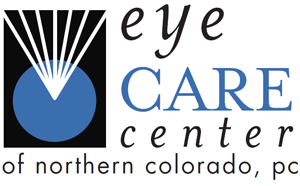As the leaves turn yellow and the pumpkins appear on front porches, you might notice another sign of the season that’s far less welcome: dry, itchy eyes.
Dry eyes impact nearly 16 million Americans. Colder, drier air has less moisture, which can cause irritation and discomfort. And in the fall, pollen (especially ragweed) is thick in the air, which can cause your symptoms of dry eye to be even worse.
If you’ve ever experienced dry eye syndrome, you’re all too familiar with scratchy eyes, itching, redness, and irritation. You might even experience blurred vision as a result.
Dry eyes might run in your family the same way blood type and height do. If your dry eye isn’t genetic, it might be caused by lifestyle factors, medications you’re taking, or a medical procedure you’ve had.
Whatever the cause, there are many ways to prevent dry eyes and treat them with at-home remedies. Here are the most common causes of dry eye syndrome — and how to get immediate dry eye relief.
What is Dry Eye Syndrome?
Millions of Americans experience dry eyes from time to time. But when the problem becomes chronic and disrupts your daily life, it can be classified as chronic dry eye syndrome.
Every time you blink, your tears nourish your eyes with moisture and healthy oils. If your eyes don’t receive that moisture — or don’t receive enough of it — it can make your eyes uncomfortable and irritated.
Symptoms of dry eye syndrome include:
- Dryness and pain
- Scratchy eyes
- The feeling that something is in your eye
- Stinging or burning
- Blurred vision
- Excess tearing, sometimes with strings of mucus
- Redness
- Irritation
- Light sensitivity
Besides being irritating and potentially impacting your daily life, chronic dry eye may cause inflammation of your eyes and possibly lead to long-term damage. Long-term dry eye syndrome can cause abrasions on the cornea, which can impact your vision.
What Causes Chronic Dry Eye Syndrome?
Before treating your dry eye symptoms, it’s important to try and figure out what’s causing them. If your eyes have felt dry for a long period of time without relief, there might be a few different reasons.
Genetic Causes of Dry Eye Syndrome
Sometimes dry eye is an unwelcome gift handed down from your parents or grandparents. As you age, you might notice dry eye becomes more of a problem.
- Age: Dry eye is more common in people 50 years old or older. As you age, your eyes produce fewer tears, making it harder to keep your eyes nourished.
- Gender: Women are more likely to develop dry eye syndrome, especially as they experience changes in hormones due to pregnancy and menopause. Hormone changes can impact the amount of moisture available to nourish your eyes.
- Autoimmune disease: Some autoimmune diseases can cause dry eye as a side effect, including Sjogren’s Syndrome, lupus, scleroderma, and rheumatoid arthritis.
Lifestyle Causes of Dry Eye Syndrome
If you notice a change in your eyes after making a lifestyle change—like moving to a new state, starting a new job, or shifting your diet—genetics might not be to blame. Several environmental factors and habits can impact the health of your eyes:
- Technology: Prolonged screen time can cause you to not blink as frequently, meaning your eyes don’t receive as much moisture.
- Air conditioning: Heaters and warm, dry air, as well as both cold and warm air from car vents can dry out your eyes.
- Dry climates: If you live in a dry climate such as the mountains or desert, the lack of moisture in the air can dry out your eyes.
- Exposure to wildfire smoke: If you live in an area with frequent wildfires, you might notice your eyes feel irritated and dry when you’re exposed to smoke.
- Diet: Your eyes receive essential nutrients from foods. Without enough vitamin A or omega-3 fatty acids, your eyes might not produce enough tears or tears with adequate nutrients to nourish your eyes.
- Allergies: Seasonal allergies to pollen can dry out your eyes. So can allergies to things around you including pet dander, mold, dust mites, cleaning products, perfumes, and beauty products.
Dry Eye Syndrome from Medications or Medical Procedures
Your eyes can be sensitive to other changes in your body, such as new medications or medical procedures.
- Medications: Many medications can cause dry eyes as a side effect, especially antihistamines, decongestants, and medications for hormone replacement therapy.
- LASIK: LASIK laser eye surgery is an amazing technological advancement in improving your vision. Sometimes as your vision improves, LASIK can cause temporary or long-term dry eye syndrome.
How to Prevent Dry Eye Syndrome
Whether dry eyes come from genetic factors, environmental causes, or medications, there are several changes you can make to your lifestyle to reduce your symptoms and get relief.
Prevent dry eye syndrome by:
- Limiting air blowing directly into your eyes from air conditioners, fans, heaters, and car vents.
- Supplementing the moisture in the air of your home and office with a humidifier, especially in winter.
- Taking breaks away from screens. This will help you blink more, which delivers moisture to your eyes.
- Protect your eyes with sunglasses when you’re outside, especially if it’s windy.
- Quit smoking. Firsthand and secondhand smoke can dry out your eyes.
How to Treat Dry Eye Syndrome
If prevention alone isn’t enough, you have options for treating symptoms of dry eye. We work with patients every day to treat eye conditions including dry eye syndrome.
Try these home remedies for dry eyes to find instant relief.
- Artificial tears: Use over-the-counter eye drops to provide lubrication only to manage mild cases of dry eyes. If the drops tend to irritate your eyes right after using them, try preservative-free drops instead.
- Supplements: Consider taking supplements of vitamins and Omega-3 fatty acids (found in fish oil and flax oil) to hydrate your eyes.
- Hydrate: When your body is well-hydrated, your eyes are well-hydrated. Drink water throughout the day to keep your eyes feeling nourished.
- Don’t rub! It might feel like you have something stuck in your eye, but rubbing your eyes can make the problem worse. You could introduce more of an allergen or irritate your eyes further.
- Cold compress: Wet a clean washcloth with cold water and lay it over your closed eyes to soothe the area and ease irritation.
If you try these at-home treatments and don’t find much relief, it’s time to see the eye doctor. We have several ways to treat dry eye syndrome to ease your discomfort.
- Blocking tear ducts: Your tear ducts drain the tears from your eyes. If your eyes are chronically dry, we might suggest having a procedure that blocks them to prevent the tears from leaving your eye. Come in to see us if this is something you’re interested in discussing.
- Prescription eye drops: If needed, we can prescribe you dry eye medication that will increase your tear production.
How We Diagnose Dry Eye Syndrome
The only way to know if you’re experiencing dry eye syndrome is by making an appointment with us (or your local eye doctor).
We’ll examine your eyes and eyelids to look for common signs of dry eye. We’ll also measure the quality and quantity of your tear production and take your blink rate into consideration.
To get a clear picture of what’s going on in your eyes, we’ll check the health of the glands in your eyes that produce nourishing oils. Whatever the results of your examination, we’ll be able to discuss possible causes and treatments
Care For Your Eyes All Year Long
Dry eye syndrome is often worse in the colder months of the year, but caring for your eyes all year long can help alleviate symptoms.
Be sure to visit us for annual visits so we can track the health of your eyes and help you deal with problems. And if you wear contact lenses, be sure to replace them as frequently as your eye doctor recommends. This will depend on the brand of contact lenses you use and the recommendations from your eye doctor.
As the weather gets cold, give your eyes some extra attention to keep them healthy and comfortable.
Learn how to care for your eyes during cold weather seasons >

